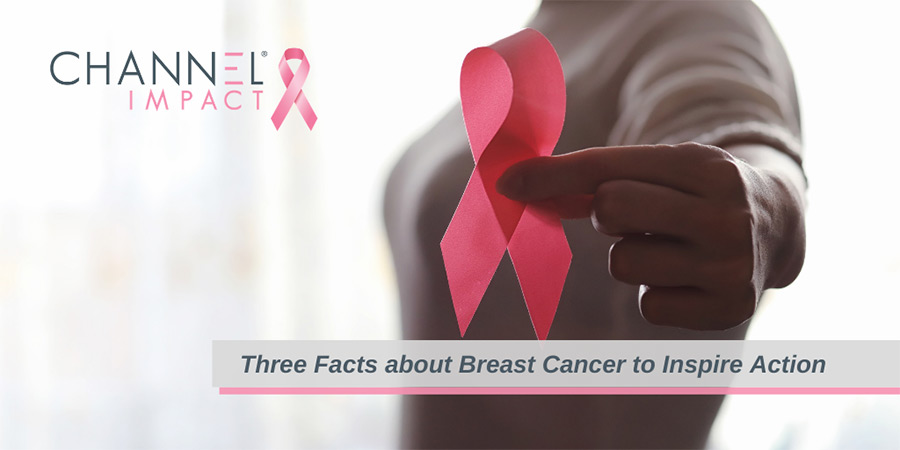Three Facts about Breast Cancer to Inspire Action

By Sandy Preto, Channels-as-a-Service Manager, Channel Impact
Before my own 2011 breast cancer diagnosis, there was a lot I didn’t know about what causes the disease, how it’s most effectively detected, and how it can affect women differently.
Today, as a breast cancer survivor and as founder of the nonprofit Notes4Hope, I’ve learned there are some facts that can inspire us to action. Here are some truths that have moved me – I hope they’ll motivate you to stay vigilant and advocate for your own health, as well as that of your family, friends and neighbors.
1. 90-95% of breast cancers are not hereditary.
According to BreastCancer.org, just 5-10% of breast cancers are “thought to be hereditary.” Though having a close family history of breast cancer can raise your risk, the vast majority are due to something external. For me, that is extraordinarily empowering news – because while we can’t pinpoint what causes a specific case of cancer, we do know that in most cases there are external factors at play. And some of those things are in our control to change. (At Notes4Hope, we focus on promoting healthy lifestyle habits to prevent cancer and facilitate recovery – later this month I’ll cover some of our favorite tips.)
2. Outcomes for women of color are disproportionate to their incidence of diagnosis.
There is a terrible disparity in the death rates for breast cancer patients: “Overall, the mortality rate … is still higher among Black, Hispanic, and Native American women than among White women.” Black women, in particular, have a mortality rate 40% higher than white women even though their incidence of breast cancer is similar. Visit Sisters Network Inc., an amazing breast cancer survivorship organization, for more information, resources, and to learn about their efforts to bring awareness to breast cancer’s impact on the African American community.”
3. No single screening method catches every breast cancer.
Self-checking and physician-provided breast screenings remain the most effective ways to detect breast cancer, according to the Journal of Women’s Health. I myself had a pain in my breast, which prompted me to get checked.
I encourage people to make mammograms and self-exams part of their health routines – mammograms can be especially valuable for identifying fast-growing invasive ductile carcinoma, one of the most common types of breast cancer.
But the truth is, there’s no single screening method that catches every breast cancer. Lots of factors, like breast density or cancer type, can affect a screening method’s effectiveness. In fact, I had a type of cancer that was only caught by a contrast-dye MRI. Click here for more information on screening methods, and talk to your doctor about which are appropriate for you.
P.S. In case you missed our previous blog post in this series, I’d like to extend an invitation for you to join us in some events and opportunities that are sure to make this Breast Cancer Awareness Month meaningful. Notes4Hope has teamed up with Bay Area breweries and brewpubs for our first Oktoberbrest, a series of special evenings featuring live music, food, and drink – including our very own beer, custom-brewed by Canyon Club Brewery! Tickets are available for purchase on the Notes4Hope website. While you’re there, don’t forget to purchase or donate a Breast Cancer Wellness and Recovery (WAR) kit, and help bring a bit of comfort to a breast cancer patient who needs it!
Channel Impact is generously hosting us in this space for a multi-part blog series on breast cancer prevention. Check back weekly throughout October to learn some surprising facts about breast cancer, healthy changes that will lower your risk, steps you can take to empower and advocate for yourself, and tools and resources to guide you on a journey of vigilance and prevention.
Do It Today!
Arm yourself with information! Take a look at this helpful guide from the American Cancer Society – and if you don’t already know your family history of breast cancer, reach out to a relative today and ask.
Stay in the Know
Keep tabs on what’s happening in the channel and the impact it will have on the partner community by subscribing to Channel Impact communications.
Recent News
Search Buzz
Buzz Categories




